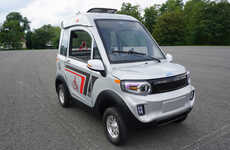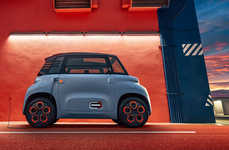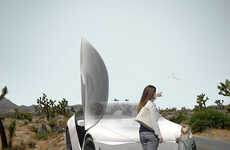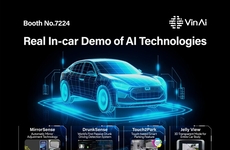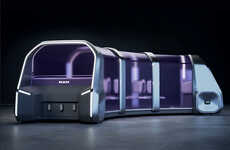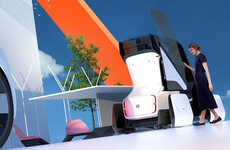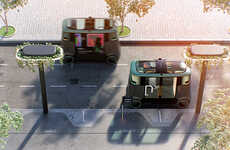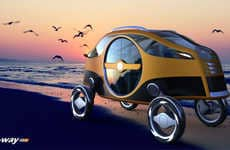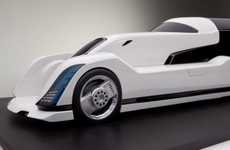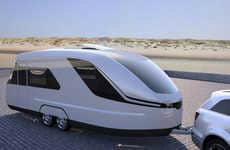
VIPA is a Driverless and Eco-Conscious Automobile
References: green.autoblog & automotto
VIPA is Ligier's electric mini vehicle, or Autonomous Individual Passenger Vehicle in French, and is an eco-friendly four wheeler ideal for airports, parks and bus or train stations.
VIPA was officially launched at the 2011 Challenge Bibendum. The uniqueness of the vehicle lies in its simplicity and use of the latest technology. The simple-looking vehicle can memorize a route with just the help of a joystick and keyboard, which is how the driverless technology essentially works.
VIPA employs two cameras mounted on the top of the vehicle's front and back, and its front laser scanner scans people and any moving object that passes its way.
VIPA's 8.5 kWh rechargeable battery pack enables it to run for eight hours consecutively, and with a top speed of 20 kmph, makes it an efficient passenger vehicle.
VIPA was officially launched at the 2011 Challenge Bibendum. The uniqueness of the vehicle lies in its simplicity and use of the latest technology. The simple-looking vehicle can memorize a route with just the help of a joystick and keyboard, which is how the driverless technology essentially works.
VIPA employs two cameras mounted on the top of the vehicle's front and back, and its front laser scanner scans people and any moving object that passes its way.
VIPA's 8.5 kWh rechargeable battery pack enables it to run for eight hours consecutively, and with a top speed of 20 kmph, makes it an efficient passenger vehicle.
Trend Themes
1. Electric Mini Vehicles - There is potential for disruption in the automotive industry as companies may see a trend towards smaller, eco-friendly, and autonomous vehicles like VIPA.
2. Driverless Technology - As more companies invest in self-driving technology, there is potential for VIPA and similar vehicles to become the norm in transportation industries like airports and train stations, as well as in cities and towns.
3. Route-memorizing Vehicles - The simplicity of VIPA's route-memorization technology may pave the way for future innovations in self-driving vehicles, enhancing their efficiency and safety.
Industry Implications
1. Transportation - VIPA and similar vehicles have potential for use in airports, train and bus stations, rental car services, and urban or suburban transportation services.
2. Tourism - The use of eco-friendly and autonomous vehicles like VIPA could provide a unique travel experience for tourists in parks or nature reserves.
3. Construction and Industrial - In an industry that requires heavy equipment, the use of smaller and autonomous vehicles like VIPA could potentially increase efficiency and safety in construction and industrial settings.
1.8
Score
Popularity
Activity
Freshness

